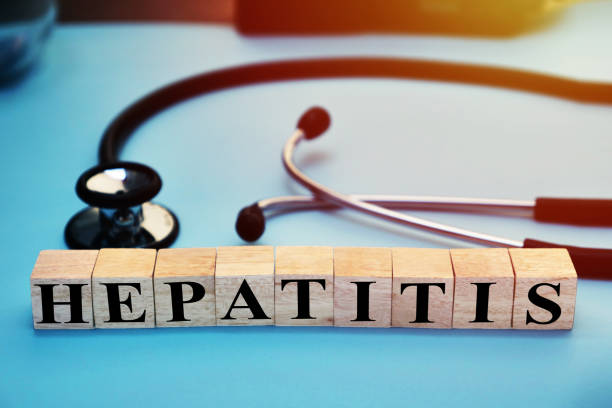As you begin to explore this article, we, at SLNI, have carefully infused it with inspirational quotes from the heart. We intend to ignite a spark of motivation within individuals to take the crucial step of getting tested for Hepatitis. Testing is not only a simple act but also the first pivotal stride toward preventing the spread of this disease. Let these powerful words of wisdom guide you on this journey toward safeguarding your health and the health of those around you.
Quotes by Icons on the Importance of Testing
Hepatitis can affect anyone, regardless of age or status. Get tested and know your status to protect yourself and others.” – Nelson Mandela
“Testing is the first step towards taking control of your health. Don’t wait; get tested for hepatitis today.” – Angelina Jolie
“Viral hepatitis is preventable and treatable. But you need to know your status first. Get tested and be hepatitis-free.” – Margaret Chan
“Testing for hepatitis is a small step with significant consequences. It can save lives and protect future generations.” – Bill Gates
“Don’t be afraid to get tested for hepatitis. Knowledge is power, and early detection can save lives.” – Princess Diana
“Testing is not just about you; it’s about protecting your loved ones and your community. Get tested for hepatitis.” – Michelle Obama
World Hepatitis Day is an annual global event observed on July 28th to raise awareness about viral hepatitis, and its impact on global health, and to advocate for better prevention, diagnosis, and treatment measures. This article delves into the history of World Hepatitis Day, its significance, the prevalence of hepatitis in Nigeria and worldwide, risk factors, and preventive measures, and concludes with recommendations to combat the disease’s spread in Nigeria.
History and Significance of World Hepatitis Day:
World Hepatitis Day was established by the World Health Organization (WHO) in 2010 to bring attention to the silent epidemic of viral hepatitis. The date, July 28th, was chosen in honor of Dr. Baruch S. Blumberg, who discovered the hepatitis B virus and developed the first hepatitis B vaccine. The day aims to unite governments, organizations, healthcare professionals, and the public to increase awareness and promote actions against viral hepatitis.
Hepatitis remains a significant public health concern globally. In Nigeria, viral hepatitis is a major burden, with an estimated 20 million people living with chronic hepatitis B and C infections. According to WHO, viral hepatitis is responsible for 1.34 million deaths annually, surpassing the mortality rates of HIV/AIDS, tuberculosis, and malaria combined. In Nigeria, hepatitis-related deaths have reached an alarming 18,000 annually.
Risk Factors and Vulnerable Populations
Several risk factors contribute to the transmission of viral hepatitis, including unprotected sex, intravenous drug use, blood transfusions, and mother-to-child transmission. Vulnerable populations in Nigeria include people living in poverty, those with limited access to healthcare, healthcare workers at risk of needlestick injuries, and individuals engaging in high-risk behaviors.
Ways to Prevent Hepatitis
To combat the spread of hepatitis in Nigeria, various prevention measures need to be implemented:
Vaccination
Routine hepatitis B vaccination is a highly effective measure in preventing hepatitis B infection, especially when administered during infancy. The hepatitis B vaccine is typically administered as a series of three doses shortly after birth, at one to two months, and at six months of age. In underserved areas or communities, ensuring access to and affordability of vaccines is crucial. Collaborating with international organizations, NGOs, and pharmaceutical companies can facilitate the distribution of vaccines to areas with limited healthcare resources. Additionally, educating parents and caregivers about the importance of vaccination and dispelling myths and misconceptions can improve vaccine acceptance rates.
Safe Injection Practices:
Unsafe injection practices pose a significant risk for hepatitis transmission. In communities where healthcare facilities may lack proper sterilization equipment or resources, promoting safe injection practices becomes critical. Health authorities should invest in training healthcare workers on infection control, proper disposal of medical waste, and the use of sterile needles and syringes. Additionally, implementing routine audits and monitoring of healthcare facilities can help identify and rectify unsafe practices promptly.
Blood Screening
Screening all donated blood for hepatitis B and C is essential to prevent transmission through blood transfusions. In some Nigerian communities where access to quality healthcare and blood screening facilities might be limited, partnerships with blood banks and laboratories can ensure that donated blood undergoes thorough screening. Government regulations mandating universal blood screening can be instrumental in safeguarding the blood supply and reducing the risk of hepatitis transmission through transfusions.
Safe Sex Practices
Raising awareness about safe sex practices is crucial. This includes promoting the consistent use of condoms, emphasizing the importance of mutual monogamy, and encouraging regular testing for sexually transmitted infections, including hepatitis B and C. Community-based organizations and healthcare workers can conduct educational workshops and provide free or affordable condoms to encourage safe sex practices.
Harm Reduction Programs
Harm reduction initiatives are essential to reduce hepatitis transmission among Intravenous Drug Users (IDUs). Needle exchange programs, where used needles are exchanged for sterile ones, can help minimize the risk of hepatitis and other infections among drug users. Moreover, such programs can provide counseling, rehabilitation services, and referrals to medical facilities for drug users seeking help to quit drug use.
Prevention of Mother-to-Child Transmission
Preventing mother-to-child transmission of hepatitis B is critical in reducing the overall burden of the disease. In underserved areas, antenatal care should include routine screening for hepatitis B in pregnant women. Those identified as carriers should receive antiviral treatment during pregnancy to lower the risk of transmission to their infants. Post-birth, administering the hepatitis B vaccine and hepatitis B immune globulin (HBIG) to newborns of carrier mothers within 12 hours of birth can significantly reduce the risk of transmission.
Recommendations
To address the hepatitis burden in Nigeria, the following recommendations are crucial:
- Improve Awareness: Conduct nationwide awareness campaigns to educate the public about hepatitis, its modes of transmission, and available preventive measures.
- Strengthen Healthcare Infrastructure: Enhance healthcare facilities to ensure access to testing, vaccination, and treatment services for all.
- Support Research: Invest in research to better understand the prevalence and risk factors of hepatitis in Nigeria and design targeted interventions.
- Empower Healthcare Workers: Provide training and resources to healthcare professionals to improve early detection and management of hepatitis cases.
- Promote Collaboration: Foster collaboration between government agencies, NGOs, and international organizations to combat hepatitis collectively.
- Reduce Stigma: Create anti-stigma campaigns to encourage people to get tested without fear of discrimination.
Conclusion
World Hepatitis Day serves as a reminder that viral hepatitis is a global health threat that demands urgent action. In Nigeria, the prevalence of hepatitis remains alarmingly high, affecting millions of lives. By raising awareness, implementing prevention measures, and ensuring widespread testing, we can reduce the burden of hepatitis and strive towards a hepatitis-free Nigeria. Together, let us unite to combat this preventable and treatable disease, making a lasting impact on public health and well-being.





